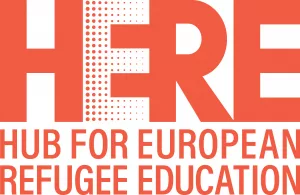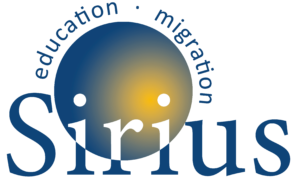Introduction
SIRIUS Facebook Lives is a series of online discussions between international experts and practitioners around inclusive education for migrants and refugees. On International Day of Education 2023, Mialy Dermish, Executive Director of SIRIUS, hosted a discussion about Belonging and Refugee Education with Professor of Education at the University of Nottingham, Joanna McIntyre, and Associate Professor of Education at Harvard University, Sarah Dryden-Peterson. Jo leads the Hub for Education for Refugees in Europe (HERE) and Sarah leads the Refugee REACH Initiative.
Belonging and Refugee Education
What belonging means for refugees is a richly discussed concept. A search of the HERE Database on the topic of Belonging and education returns 43 publications (as of January 2023 – there may now be more). Bitzi & Landolt (2017) point out how educational arrangements can produce feelings of both belonging and non-belonging and Mathieson’s (2020) doctoral thesis suggests that in Norway, young refugees’ experiences of ‘otherness’ are reinforced within schools. In other parts of Europe, Dareli (2022) explores experiences of belonging through higher education in the Turkish context, highlighting how various autobiographical, relational, cultural, and legal factors can foster in refugees a sense of belonging through their campus experiences as well as feeling empowered by their student identity to support belongingness beyond campus. Meanwhile, Sobitan (2022) attempts to understand how secondary school refugee students experience belonging in the North East of England, finding how participants’ lack of control of themselves, their environment and their future led to frustration, that being able to contribute to school life was important to belonging, as were concerns related to feelings of safety and separation. Offering a more practical focus, Ward (2022) is explicit in trying to find ways in which practitioners can support unaccompanied asylum-seeking children in seeking a sense of belonging, whilst McIntyre & Neuhaus (2021) provide a new theoretical approach to underpin reforms to educational policy and practice for refugees in schools in resettlement contexts in Europe. Then there are numerous publications and policy documents drawing links between belonging and the contested concepts of integration, social inclusion/exclusion (such as the working paper series of specific country reports on Integration Policies, Practices & Experiences, e.g. Atto, Hall & Hirst (2020) for the UK; Cetrez, et al. (2020) for Sweden; Ibrido & Marchese (2020) for Italy; Pachocka, et al. (2020) for Poland; Rottmann (2020) for Turkey; Chemin & Nagel (2020) for Germany).
In the SIRIUS Facebook Lives discussion between Mialy, Jo and Sarah (below) we hear more about how belonging must be seen as a process that is emotional, relational, dynamic and on-going. Insightful reflections from the three discussants whose work engages in various ways with refugee students and the educational environments through which they travel reveal possible issues of trans-national emotional dissonance between belonging in the here and now and feelings of guilt around letting go of former experiences of settlement. They discuss how feelings related to belonging can be quite different in private emotional spaces personal to refugees themselves and the public spaces with which they interact that can be more rigidly (externally) defined in terms of belonging. We must be aware that belonging is a reciprocal process and to feel comfortable in a place, you need to feel valued for who you are and what you bring; that whilst as bell hooks (2008) attests, belonging is a ‘habit of the heart’, it is also linked to power and privilege. It makes us ask who is defining ‘belonging’ and to what?
Different educational contexts simultaneously reveal both inclusionary and exclusionary practices as the discussion moves on to different models of refugee education at the local, Europe-wide and global levels. This leads to contemplation about the need to embrace uncertainty from within and potentially reshape our expectations as a society. Perhaps, to avoid the sense of ‘wasted lives’ (Bauman, 2004) amongst young refugees within our education systems, we need alternative, more holistic, asset-based models that take into account young people’s visions of the society to which they (are expected to) contribute. For refugee students, education is seen as a long-term endeavour and a way of building for their future. Education policy and practice should reflect this, not just for the benefit of refugee students but for other marginalised groups and for all young people. And whilst academics can ponder such political and conceptual challenges, Mialy provokes both Jo and Sarah to consider what practical advice they can offer to teachers (and senior leaders in schools) in trying to provide positive educational environments for refugees.
The final message from both academics is to move the discussion on from seeing refugee education as an exercise in crisis management. Rather, it is about seeing education for all children as a long-term, sustainable and inclusive process which involves having difficult conversations at all levels of the educational infrastructure, without vindicating policy makers, to help take us from the currently dominant, academic output-led, success-based model (for both students and schools) to consider more relational educational environments.


